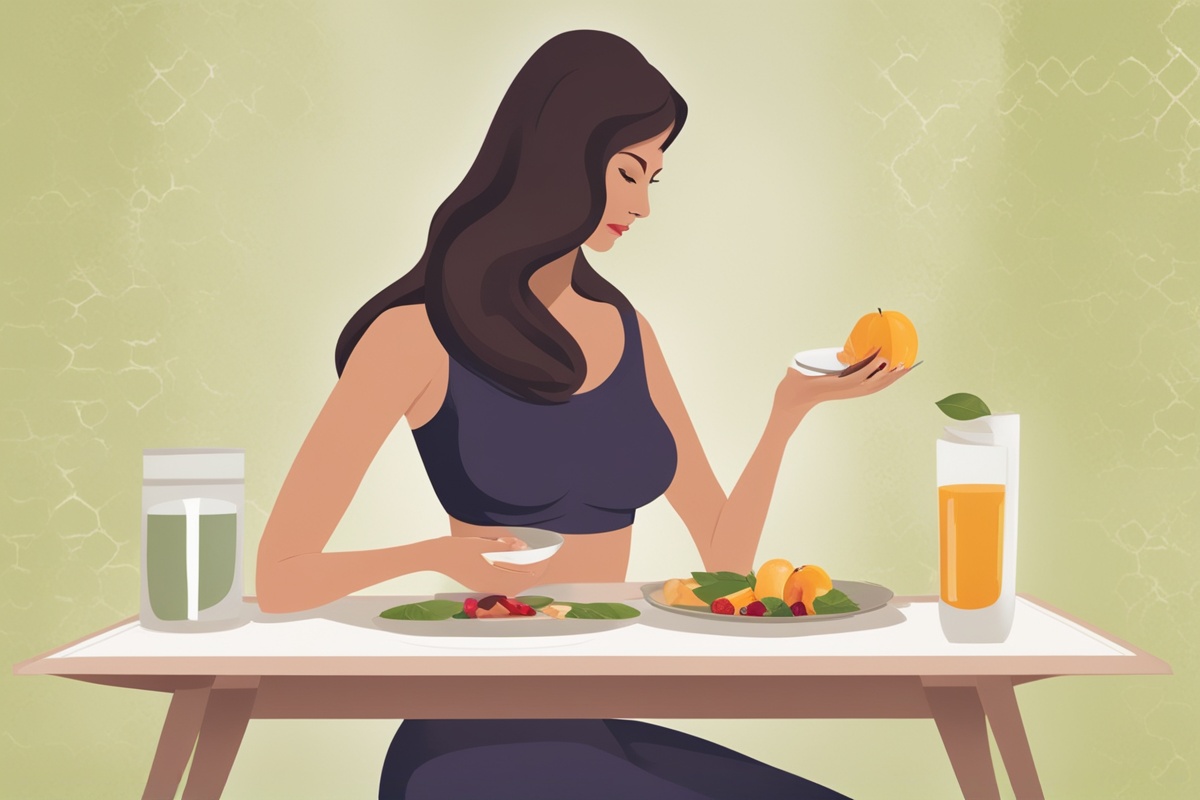Welcome, ladies, to a deep dive into the world of fasting for women! If you’ve been curious about intermittent fasting or other fasting methods, you’re in the right place. Fasting has gained massive popularity for its potential health benefits, from weight loss to improved mental clarity. However, women’s bodies are unique, and fasting isn’t a one-size-fits-all approach. Hormonal fluctuations, energy needs, and reproductive health all play a role in how fasting affects us. In this post, we’ll explore the science behind fasting, its specific impacts on women, and practical ways to make it work for your lifestyle. Let’s uncover how women fasting can be a powerful tool when done right.
Why Fasting for Women Is Different
When it comes to fasting women have physiological differences that make their experience unique compared to men. Our bodies are wired for reproduction, and hormonal cycles governed by estrogen and progesterone can influence how we respond to fasting. Research shows that women may be more sensitive to caloric restriction due to the brain’s connection to reproductive health. For instance, prolonged fasting or extreme calorie deficits can signal stress to the body, potentially disrupting menstrual cycles or affecting fertility. This doesn’t mean fasting is off-limits; it just means we need a tailored approach to intermittent fasting women can thrive with.
Health Benefits of Fasting for Women
Despite the need for caution, fasting offers incredible benefits when done thoughtfully. Studies suggest that intermittent fasting can support weight management by improving insulin sensitivity and reducing cravings—key factors for many women struggling with hormonal weight gain. Beyond the scale, fasting may enhance autophagy, the body’s process of clearing out damaged cells, which could slow aging and boost overall health. For women dealing with conditions like PCOS (polycystic ovary syndrome), fasting women health benefits may include better blood sugar control and reduced inflammation. Additionally, many women report improved mental focus and energy during fasting windows, making it a holistic wellness tool.
Potential Challenges of Fasting for Women
While the perks are enticing, fasting isn’t without its hurdles for women. Hormonal imbalances are a common concern, especially if fasting is too aggressive. Some women experience irregular periods or increased stress hormones like cortisol when fasting for extended periods. Energy dips and irritability—often dubbed “hanger”—can also be more pronounced during certain phases of the menstrual cycle, like the luteal phase. Nutrient deficiencies are another risk if fasting isn’t paired with a balanced diet. Understanding these challenges is key to making fasting and women’s health align safely and sustainably.
How to Start Fasting Safely as a Woman
If you’re new to fasting, ease into it with a gentle approach. Start with a beginner-friendly method like the 12:12 plan, where you fast for 12 hours and eat during a 12-hour window (think overnight fasting). Gradually progress to popular protocols like 16:8, fasting for 16 hours and eating within an 8-hour window. Listen to your body—women’s fasting needs vary based on age, activity level, and cycle phase. Here are some actionable tips to get started with women intermittent fasting:
- Begin with shorter fasting windows and monitor how your body feels over a few weeks.
- Stay hydrated with water, herbal teas, or black coffee during fasting periods to curb hunger.
- Break your fast with nutrient-dense foods like lean protein, healthy fats, and veggies to avoid blood sugar spikes.
- Avoid fasting on high-stress days or during intense workouts until your body adapts.
- Consult a healthcare provider if you’re pregnant, breastfeeding, or have a history of eating disorders.
Customizing Fasting Around Your Menstrual Cycle
One of the most empowering ways to approach fasting for women is syncing it with your menstrual cycle. Hormonal shifts throughout the month affect energy, hunger, and metabolism. During the follicular phase (days 1-14, starting with your period), estrogen rises, and many women feel more resilient to fasting—making it a great time for longer fasts like 16:8. In the luteal phase (days 15-28), progesterone dominates, often increasing appetite and fatigue. Here, shorter fasting windows or even pausing fasting can prevent stress on the body. Try these cycle-based strategies for women’s fasting tips:
- Opt for longer fasts during the follicular phase when energy levels are typically higher.
- Reduce fasting intensity or eat more intuitively in the luteal phase to support your body’s needs.
- Track your cycle and mood in a journal to identify patterns with fasting.
- Prioritize nutrient-rich meals with iron and magnesium during menstruation to combat fatigue.
Balancing Fasting with Nutrition and Lifestyle
Fasting isn’t just about skipping meals—it’s about nourishing your body when you do eat. For women, maintaining adequate protein, healthy fats, and micronutrients is crucial to support hormonal health. Think avocados, nuts, leafy greens, and wild-caught fish. Pair fasting with stress management techniques like yoga or meditation, as chronic stress can amplify any negative effects of fasting on hormones. Sleep is another non-negotiable; aim for 7-9 hours nightly to aid recovery. Remember, fasting women benefits are maximized when fasting is part of a balanced lifestyle, not a quick fix.
As we wrap up this guide on fasting for women, it’s clear that fasting can be a transformative practice when approached with care and intention. From boosting metabolic health to enhancing mental clarity, the benefits are compelling—but so are the need for personalization and mindfulness. Every woman’s body responds differently, so experiment with various fasting styles, listen to your cues, and don’t hesitate to seek guidance from a nutritionist or doctor. Whether you’re exploring intermittent fasting for women to lose weight or simply feel better, the journey is yours to shape. Start small, stay consistent, and celebrate the small wins. Here’s to harnessing the power of fasting for vibrant health!






